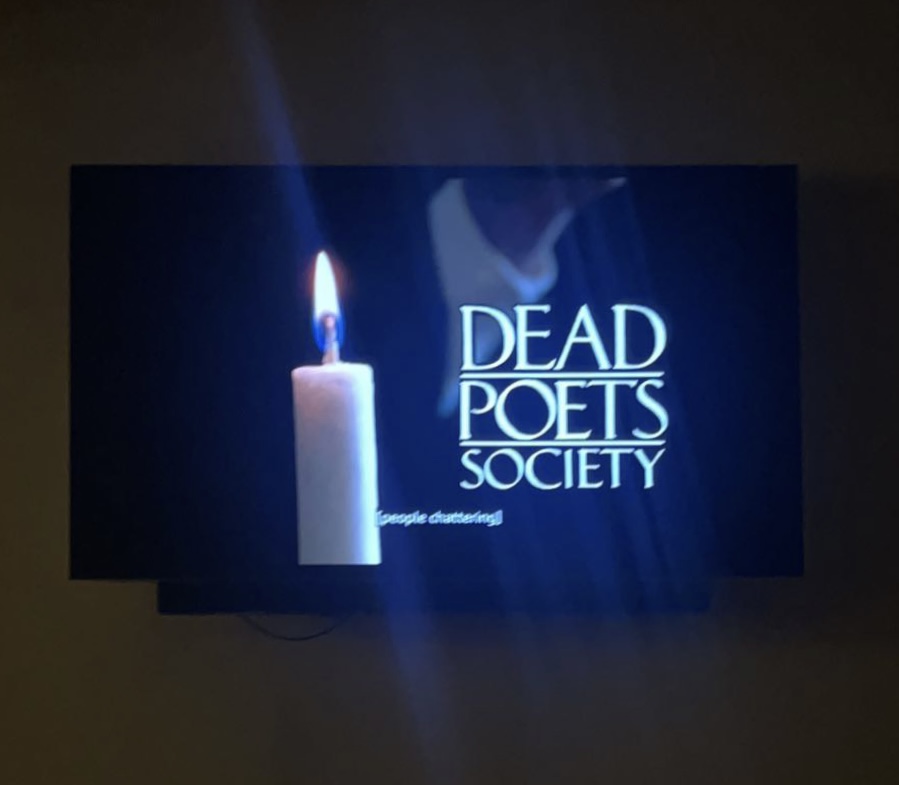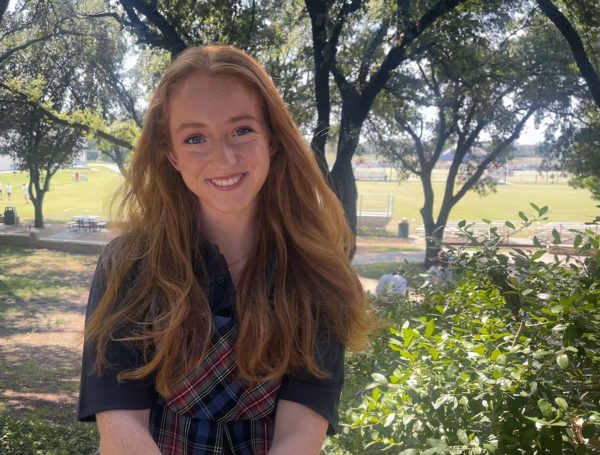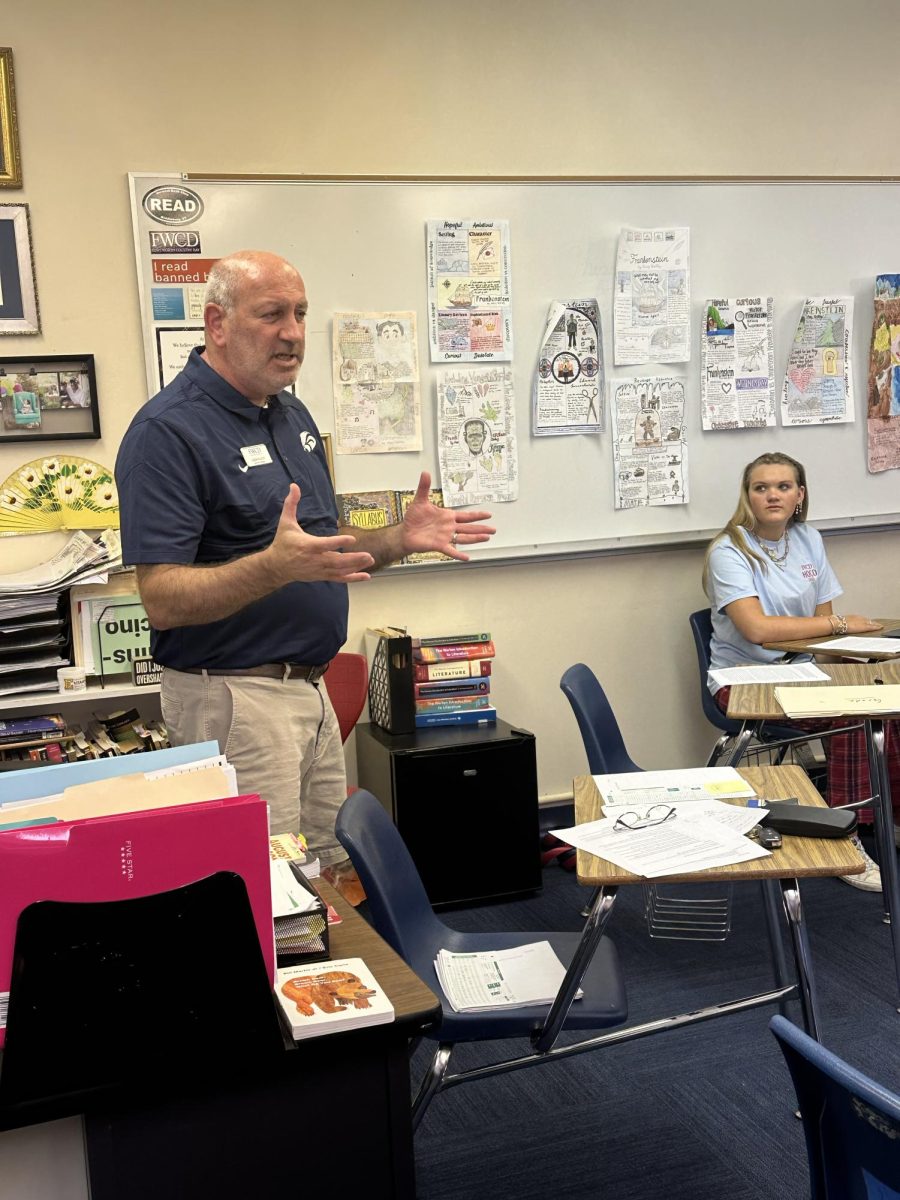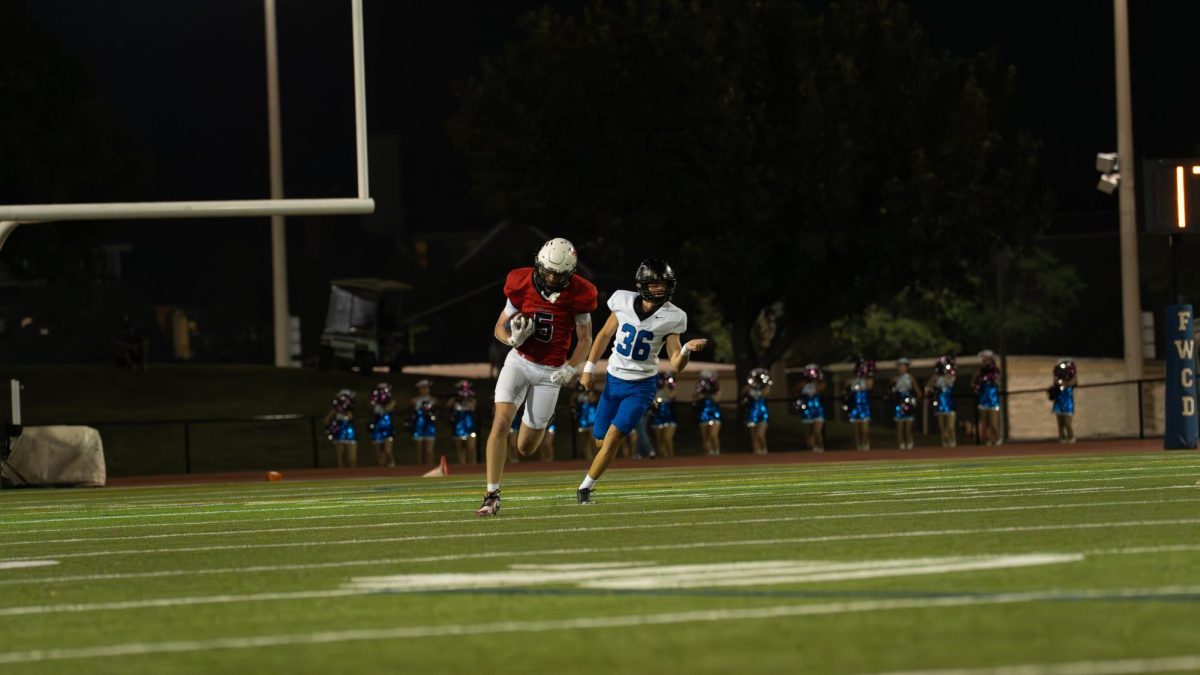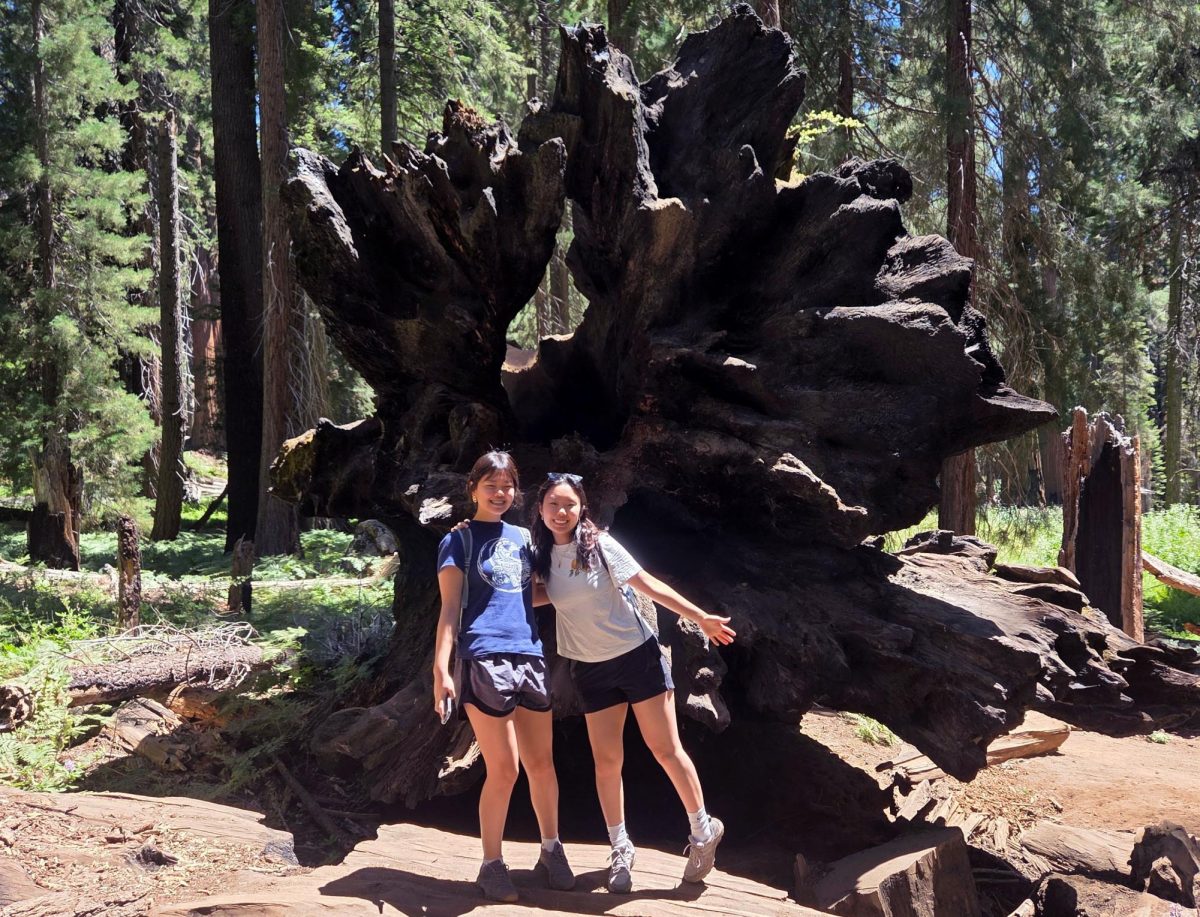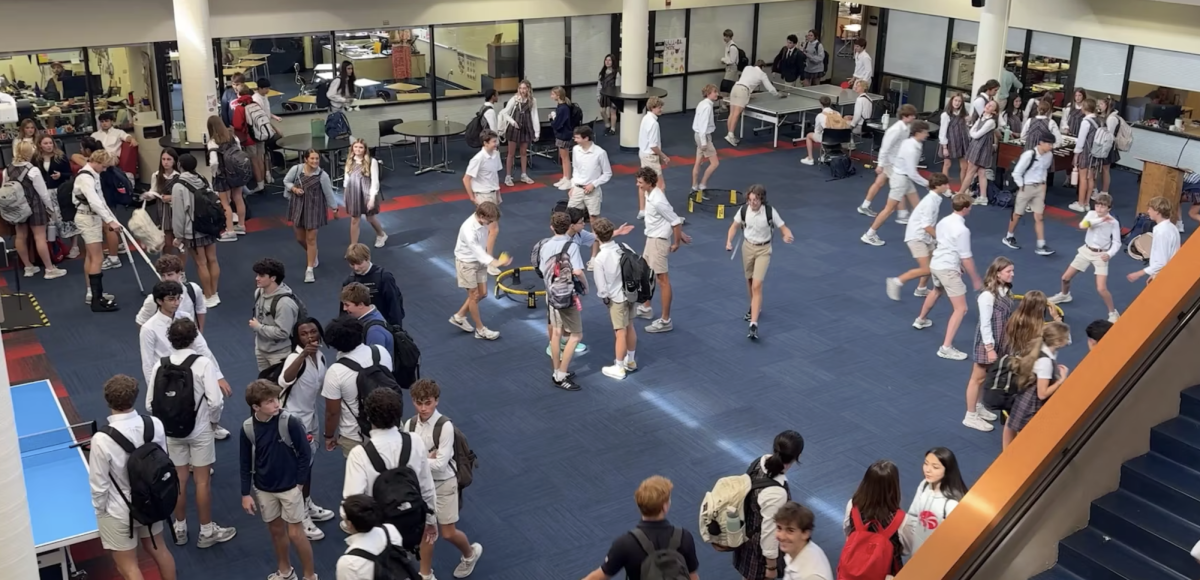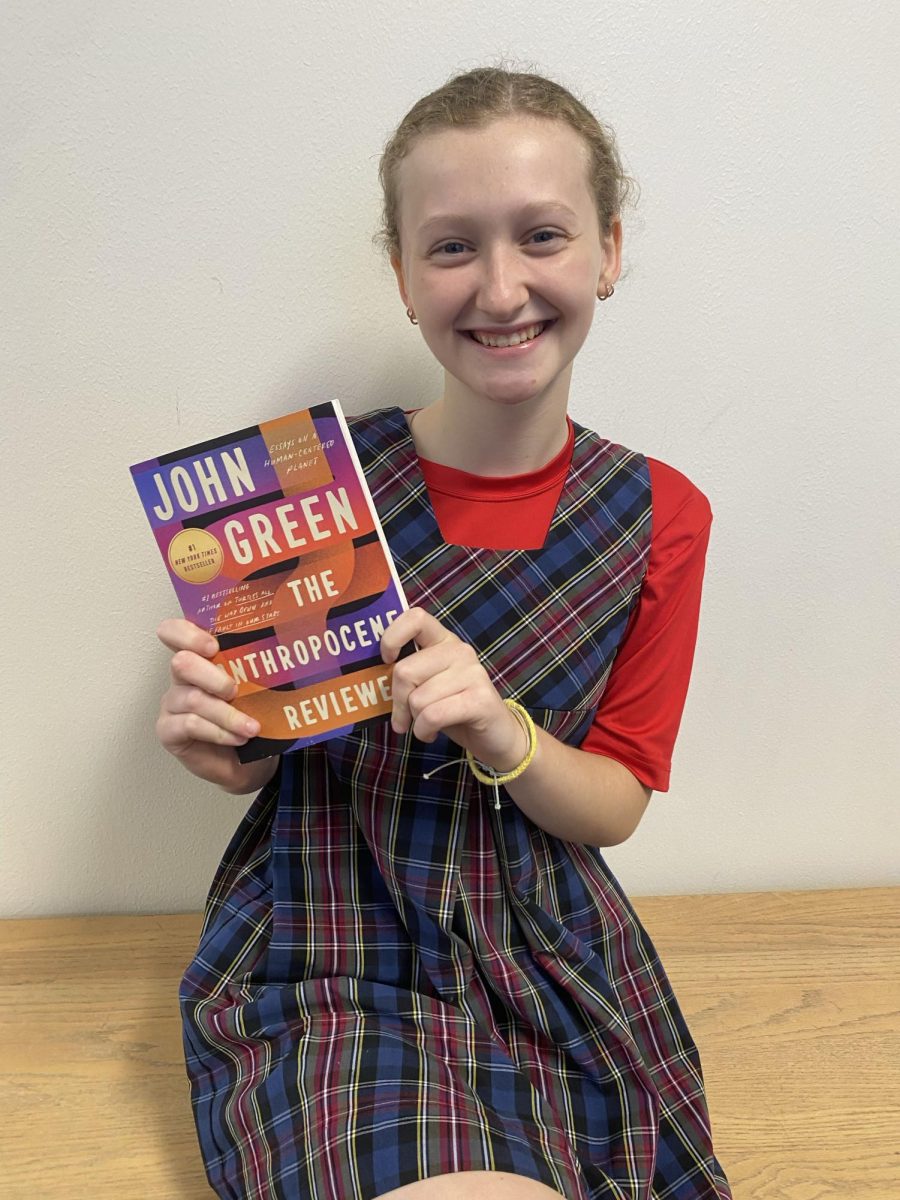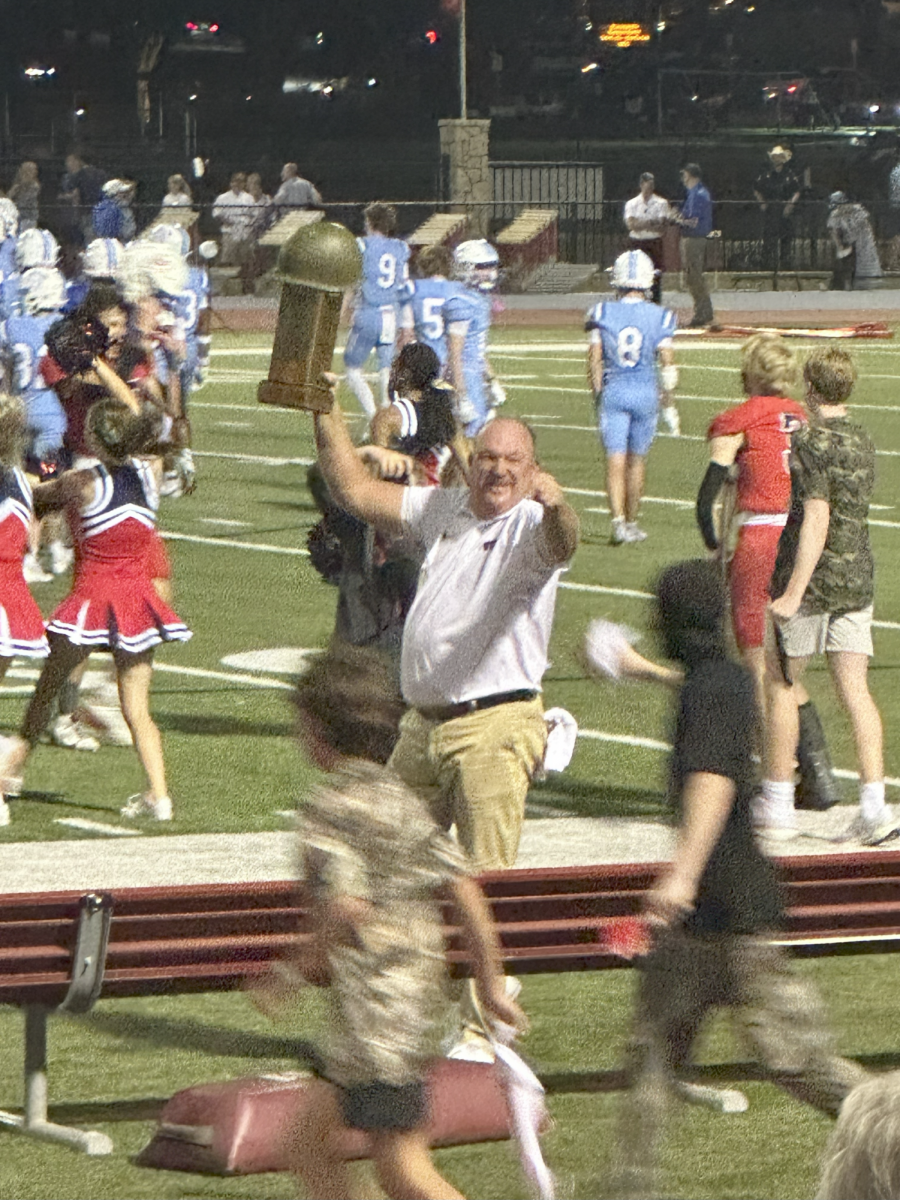Carpe Diem, Seize the Day
The opening image for “Dead Poets Society.”
November 22, 2022
When you hear the title, “Dead Poets Society,” what do you think? A bunch of ghosts rising up from the dead to read poetry? A group of people writing poetry in the afterlife? Or possibly the most implausible idea: a club of high school boys gathering in a cave at night to share poetry and play the saxophone? Well believe it or not, if you guessed the latter, you would be correct.
It’s the movie that gave us the quotes: “No matter what anybody tells you, words and ideas can change the world,” and the famous, “O captain, my captain”; the movie that made people understand the importance of poetry and love; the movie that evoked laughter, and then tears, and then more tears, from viewers across the world; the movie that changed my life. It’s “Dead Poets Society.”
The 1989 film follows the lives of seven prep-school boys at the prestigious Welton Academy, (St. Andrews School in Middletown, Delaware) in 1959, whose lives change when they meet their new English teacher, Mr. Keating, played by Robin Williams.
“I think that Dead Poets Society is a wonderful movie. It does a really good job of portraying teenage rebellion,” Courtney Comeaux ‘26 said.
Todd Anderson (Ethan Hawke) is a shy, insecure, endlessly lovable character who has spent his life feeling like he was in his “perfect” older brother’s shadow.
Neil Perry (Robert Sean Leonard) is probably how you would imagine Todd’s “perfect” older brother. Neil is the stereotypical, “popular kid” character. If there was a limit on how many “Yes sir” or “Yes ma’ams” you could say in a lifetime, Neil would have reached that limit as a toddler. Despite this stereotype, Neil is genuinely kind and earnest, and he welcomes new-kid Todd with open arms.
These two boys, along with their friends: Meeks (Allelon Ruggiero), Knox (Josh Charles), CharlieNuwanda (Gale Hansen), Pitts (James Waterson), and Cameron (Dylan Kussman), wander into Mr. Keating’s poetry class on the first day of school, expecting their typical, old, strict, stickler teacher.
Boy will they be surprised by what happens next.
Mr. Keating, an avid believer of the phrase “carpe diem,” spends his class time teaching the students the power of beauty, poetry, and love, through his unique teaching techniques.
Said techniques include reading inspirational quotes while kicking a soccer ball to the tune of Beethoven’s “Ode to Joy,” marching around in a circle to see how a group’s footsteps align when they walk together, and standing on their desks to look at life from a new perspective.
The previously mentioned group of students learn that Mr. Keating was a part of a club called the “Dead Poets Society,” and naturally, they are intrigued.
Neil, the unsaid leader of the group, decides to go against his father’s stringent rules and do something that doesn’t involve getting into Harvard Law School: reinstate the club.
The rest of the movie expands on each of the group members’ personal lives, especially that of Neil and Todd, and it shows how people don’t always show what they really feel.
“The movie was so well made and it gave me a different perspective on life. I think that it is one of the best movies ever made,” Bailey Flynn ‘26 said.
I am not sure if I can give you an accurate depiction of the end of the film, as my abundance of tears made focusing a bit difficult. That being said, there is not a doubt in my mind that it is my favorite movie.
Now, don’t get me wrong, I am not typically one to cry during even the saddest movies, with an exception for Disney’s Fox and Hound, but this movie brought my emotions to an entirely new level.
I cried three times when I re-watched this past weekend, then four times the next day just by thinking about it. The chorus of a pop song made me cry because I listened too hard to the lyrics and ended up relating them to characters in the movie. I’m not kidding.
Dead Poets Society changed the way that I look at life and the people around me. It left me asking two questions: “How can something be so beautiful and so tragic all at the same time?” and then, “How can I move to Delaware and enroll in the school where this was filmed?”
Not only did the plot keep me hooked until the very last second, the setting was one of the most beautiful places that I had ever seen.
The only improbable part of the movie to me was that it was set at a real school, and not some sort of gothic fairytale wonderland.
Another thing that I enjoyed, especially after watching the movie a second time, was the foreshadowing and symbolism. Learning how many aspects of the movie had hidden meanings was very interesting.
“I love the way that the film showed individualism and freedom of speech. I also liked how when the main character wanted to do things he enjoyed, he was supported by his teachers and classmates,” Ashton Theesfeld ‘26 said.
On a less beautiful note, it is also necessary to mention that one of the characters commits suicide.
Nonetheless, I don’t believe that anyone has truly lived until they have watched this movie, preferably more than one time.
Please, I beg of you, watch Dead Poets Society.



